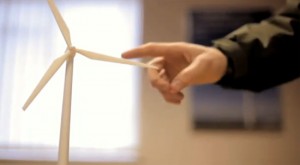Get involved in The Co-operative movement for a greener future

Ever since it was formed in 1844 the Rochdale Society of Equitable Pioneers continued growing steadily and quickly turned itself into a co-operative model that remains the foundation of the The Co-operative Movement as we know it today. A group of 28 weavers and artisans from Rochdale joined forces in 1844 to fight the poverty and bad working conditions brought on by the industrial revolutions. They created a business model based on democracy, owned by the people and reinvesting in the community. Just ten years after opening their first store selling items they could not otherwise afford, the British Co-operative movement had grown to over 1000 co-operatives. Today there are over 5000 stores and branches across the UK. Recently The Co-operative movement launched an advertising campaign for more co-operatives businesses to join the revolution and help more people to bring their ideas to life and turned them into a business that benefits the community and the environment.
The Co-operative Movement believes in fair trade, good working conditions and supporting communities.
 Among so many exciting projects I was particularly impressed with the Green Schools initiative which raises awareness in children on how to keep a clean, green and sustainable future. 185 schools have already been kitted out with installations to produce their own renewable energy helping over 90.000 students to learn about their carbon footprint. On top of that every year thousands of students visit green energy sites as well as local farms to learn how food is grown. The Co-operative school model encourages also the setting up of the walking bus with more than 2000 children walking to school with the Co-operative walking bus, which saves 180.000 car journeys and tons of carbon dioxide.
Among so many exciting projects I was particularly impressed with the Green Schools initiative which raises awareness in children on how to keep a clean, green and sustainable future. 185 schools have already been kitted out with installations to produce their own renewable energy helping over 90.000 students to learn about their carbon footprint. On top of that every year thousands of students visit green energy sites as well as local farms to learn how food is grown. The Co-operative school model encourages also the setting up of the walking bus with more than 2000 children walking to school with the Co-operative walking bus, which saves 180.000 car journeys and tons of carbon dioxide.
The idea of children producing renewable energy in school and learning about sustainability is very appealing from a parent’s point of view and I hope more schools get involved and join the Co-operative revolution to be able to increase the number of green schools to a point that is part of the curriculum. This would be an enormous achievement for communities and the environment.
































